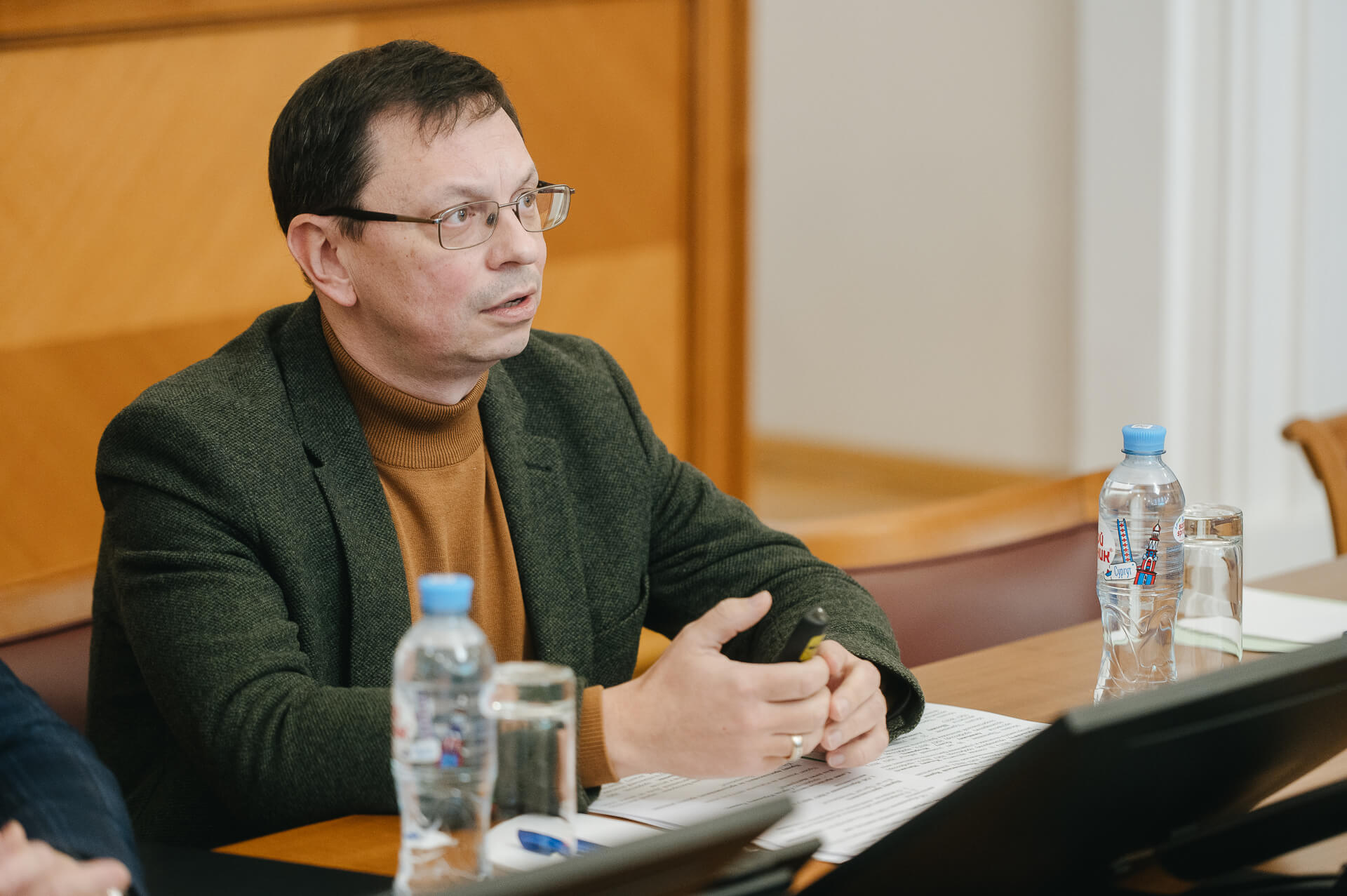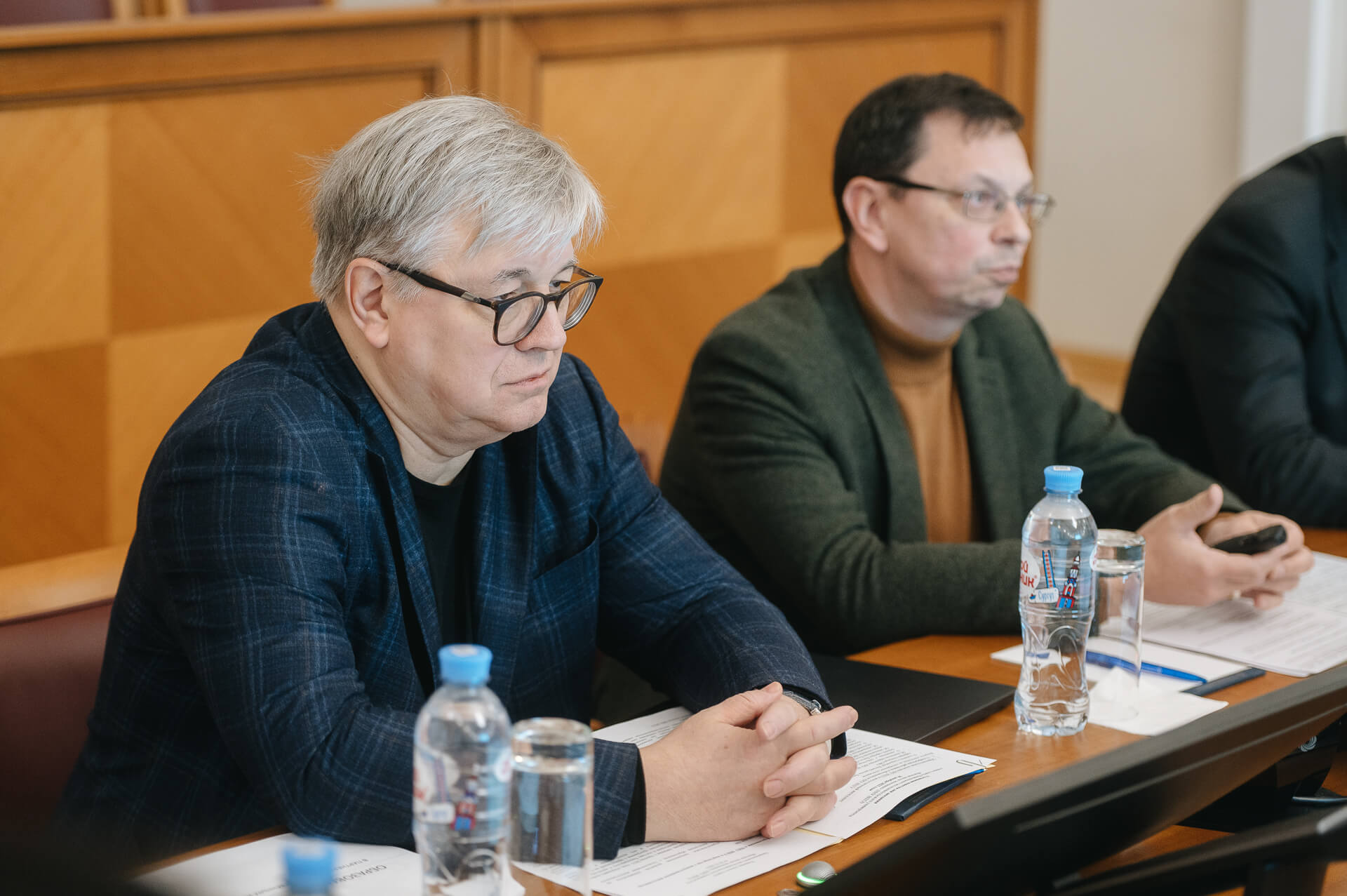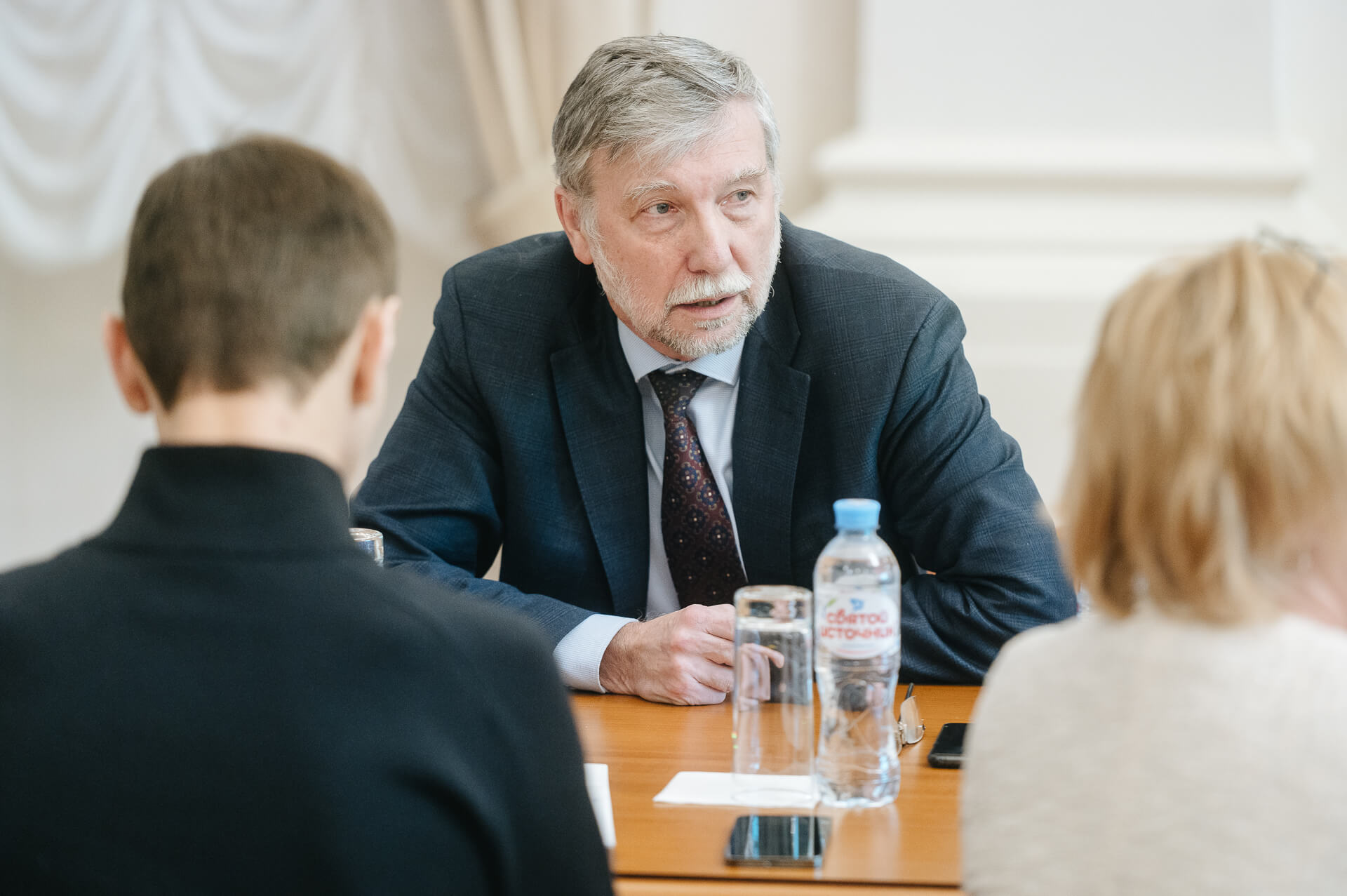- A
- A
- A
- ABC
- ABC
- ABC
- А
- А
- А
- А
- А
- HSE University
- Faculties
- Faculty of Economic Sciences
- School of Finance
- News
- ‘University Life in Partnership with Artificial Intelligence’
-
The School
-
RESEARCH ACTIVITIES
- Laboratories
- Series “Advanced studies in emerging market’s finance” at Springer Nature o Networking with international academic associations
- Networking with international academic associations
- Research seminars
- International PhD workshop
- The International Seminar «ESG Transformation»
-
RESEARCH WORKING GROUPS
- Research Working Group "Innovations in the banking sector, its financial stability and prudential regulation"
- BUSINESS EDUCATION
- Networking with business associations
- Networking with professional associations
- Center for Research on Non-Financial Reporting
-
DATABASES
119049 Moscow, Russia
11 Pokrovskiy boulevard, room S629
Phone:
+7 (495) 772-95-90*27447, *27947, *27190
+7 (495) 916-88-08 (Master’s Programme Corporate Finance)
- Email: df@hse.ru
Head of Corporate Finance Research Center, Dr., tenured professor

+7495-772-95-90 (add. 27447)

+7495-772-95-90 (add. 27947)
The HSE School of Finance is the leading Russian competence center in the field of corporate finance, business valuation, banking, stock market, risk management and insurance, accounting and audit.
HSE is the first Russian university in the global ranking "QS - World University Rankings by subject", 2022 in the subject area of Accounting and Finance. Moreover, the university is the 1-st in the rating "THE World University Rankings by subject" in the subject area of Business & Management Studies, 2022
Cherkasova V. A., Nenuzhenko I.
Journal of Economic Integration. 2022. Vol. 37. No. 1. P. 54-92.
Electronic Journal of Applied Statistical Analysis. 2022. Vol. 15. No. 1. P. 187-210.
Kolade S. A., Semenova M.
Financial Economics. FE. Высшая школа экономики, 2022. No. WP BRP 87/FE/2022.
Управление финансовыми рисками. 2022. Т. 70. № 2. С. 108-120.
In bk.: The 8th International Conference on Information Technology and Quantitative Management (ITQM 2020 & 2021): Developing Global Digital Economy after COVID-19. Vol. 199: The 8th International Conference on Information Technology and Quantitative Management (ITQM 2020 & 2021): Developing Global Digital Economy after COVID-19. Manchester: Elsevier, 2022. P. 798-805.
Korablev D., Poduhovich D.
Journal of Corporate Finance Research. 2022. Vol. 16. No. 1. P. 136-145.
Olkhovik V., Lyutova O. I., Juchnevicius E.
Научно-исследовательский финансовый институт. Финансовый журнал. 2022. Vol. 14. No. 2. P. 73-90.
Churyk N. T., Anna Vysotskaya, Kolk B. v.
Journal of Accounting Education. 2022. Vol. 58.
Абдрахманова Г. И., Васильковский С. А., Вишневский К. О. и др.
М.: Издательский дом ГУ-ВШЭ, 2022.
Абдрахманова Г. И., Васильковский С. А., Вишневский К. О. и др.
М.: Национальный исследовательский университет "Высшая школа экономики", 2022.
Гришунин С. В., Сулоева С. Б., Пищалкина И. И.
Организатор производства. 2022. Т. 30. № 1. С. 60-72.
Гришунин С. В., Сулоева С. Б., Пищалкина И. И.
Экономический анализ: теория и практика. 2022. Т. 21. № 3. С. 478-496.
S. Grishunin, E. Naumova, N. Lukshina et al.
Russian Management Journal. 2021. Vol. 19. No. 4. P. 475-493.
Journal of Corporate Finance Research. 2022. Vol. 16. No. 1. P. 99-112.
Grishunin S., Bukreeva Alesya, Alyona A.
In bk.: The 8th International Conference on Information Technology and Quantitative Management (ITQM 2020 & 2021): Developing Global Digital Economy after COVID-19. Vol. 199: The 8th International Conference on Information Technology and Quantitative Management (ITQM 2020 & 2021): Developing Global Digital Economy after COVID-19. Manchester: Elsevier, 2022. P. 190-197.
 International Conference “Future Directions in Accounting and Finance Education”, 27-28 May 2019, Moscow, Russia
International Conference “Future Directions in Accounting and Finance Education”, 27-28 May 2019, Moscow, Russia
Edited by: А. Б. Высотская, B. v. Kolk.
Vol. 58. Elsevier, 2022.
Karamysheva M., Seregina E.
Journal of International Money and Finance. 2022. Vol. 127.
In press
Journal of Economic Dynamics and Control. 2022. Vol. 137.
Karamysheva M., Skrobotov A.
Journal of Economic Dynamics and Control. 2022. Vol. 138.
Известия Санкт-Петербургского государственного экономического университета. 2022. № 4. С. 144-155.
Тихомиров Д. В., Цехомский Н. В.
Экономика и управление. 2022. Т. 28. № 1. С. 16-24.
Селезнёва З. В., Евдокимова М. С.
Финансы: теория и практика. 2022. Т. 26. № 3. С. 64-84.
Evdokimova M., Stepanova A. N.
In bk.: 38th EBES Conference - Program and Abstract Book. Istanbul: EBES, 2022. P. 39.
Assanskiy A., Shaposhnikov D., Tylkin I. et al.
Journal of Behavioral and Experimental Economics. 2022. Vol. 98.
Teplova T., Mikova E., Munir Q. et al.
Economic Change and Restructuring. 2023. Vol. 56. No. 1. P. 515-535.
Повх К. С., Кокорева М. С., Степанова А. Н.
Экономический журнал Высшей школы экономики. 2022. Т. 26. № 1. С. 9-36.
Anton Markov, Zinaida Seleznyova, Victor Lapshin.
Journal of Finance and Data Science. 2022. Vol. 8. P. 180-201.

‘University Life in Partnership with Artificial Intelligence’

HSE University is one of the leaders in IT education and research in the field of artificial intelligence (AI). Thanks to this, the university recently received the highest grant of the Priority 2030 programme. The integration of AI technologies into education is set to become a strategic direction for the university’s development over the next five years. What changes are coming to HSE University in this regard and how they will affect students and teachers? These issues were discussed at a meeting of HSE University’s Academic Council on December 20.
At the beginning of the meeting, HSE University Rector Nikita Anisimov noted that the university had proven its leading position in the first group of the ‘Research Leadership’ area of the Priority 2030 programme and received the largest grant.
He outlined and commented on eight points characterising HSE University’s development in 2023, which formed the basis of his report at the meeting of the Programme Council:
connecting social and humanitarian knowledge with digital sciences
capitalisation of accumulated scientific potential
creating human-oriented technologies through strategic projects
maintaining high standards of education quality
youth development for the country’s sustainable future
development of the management system to ensure the university’s sustainability
ensuring a contribution to supporting youth and the development of education and science in Russia’s regions
maintaining the position of a world-class national research university in the new geopolitical conditions

One of the Priority 2030 Council’s recommendations was to focus more on AI technologies for people. ‘In conditions where no one has any doubts about the role and value of artificial intelligence technologies for the further existence of humanity, we need to understand how it will become part of our large community’s life,’ said Nikita Anisimov.

As Yaroslav Kuzminov, HSE University’s Academic Supervisor, emphasised, ‘HSE University is practically the only university that has retained the scale of financial support from previous years due to the fact that we acted impeccably in cooperation with the Ministry of Digital Development of Russia by participating in the Digital Departments project.’
HSE University’s Vice Rector Sergey Roshchin gave a report on AI, the main item on the meeting agenda.
According to him, the university realised earlier than others that everyone should have digital competencies, and today HSE University is virtually an information technology university. The number of bachelor’s and master’s programmes that are in one way or another related to computer science is larger than the number of programmes in economics and management.

Sergey Roshchin suggested treating existing achievements as prerequisites for further development. ‘There is quite a serious turn ahead,’ he said.
In the near future, they plan to update the Data Culture project, under which all students of bachelor’s programmes will receive digital competencies. One component of the project will be changed this academic year as an experiment, then next year systematically. Students will have to study data analysis, methods of working with AI, and generative models in various fields—from design and Asian studies to management and law.
The developments of the Data Culture project will be transferred to a major (part of the main educational programme that forms the knowledge system in the main area of training), where courses related to the use of AI will appear. According to Sergey Roshchin, only 5% of disciplines currently cover interaction with various elements of AI.
The space of programmes whose graduates have subject and instrumental competencies and can apply these competencies in the selected subject areas will expand. There are already many such programmes at the master’s and bachelor’s levels, such as Computational Social Sciences.
Generative models should become part of students’ learning toolset—they can be used in projects, coursework, and graduation papers. In addition, students will have the opportunity to take part in projects to test technologies for identifying generative models.
Updating the skills, abilities, and competencies of teachers is another large-scale task which will allow the university to remain competitive. ‘2024 should be a year of large-scale retraining of teaching staff,’ concluded Sergey Roshchin.
Artificial intelligence should also be utilised to assist teachers by performing routine tasks. For example, an AI evaluator is being developed based on an array of data from independent exams within the framework of the Linguatest certification testing system implemented by HSE University.
According to the speaker, HSE University should become a university where artificial intelligence permeates all subject areas. The university’s online campus has already engaged in reworking all AI-related aspects, and this work needs to be implemented at the four traditional campuses as well.
There is also an ethical aspect of using AI in the educational process. Sergey Roshchin proposed the formulation of an ethical code within HSE University, which will be the first regulation of how different participants in the educational process interact with AI.
Commenting on the report, Nikita Anisimov noted that the discussion is about a very serious area in which ‘we take responsibility not just for the introduction of education in the field of artificial intelligence at the university, but for the life of the university in partnership with artificial intelligence.’
- About
- About
- Key Figures & Facts
- Faculties & Departments
- International Partnerships
- Faculty & Staff
- HSE Buildings
- Public Enquiries
- Studies
- Admissions
- Programme Catalogue
- Undergraduate
- Graduate
- Exchange Programmes
- Summer University
- Summer Schools
- Semester in Moscow
- Business Internship
-
https://elearning.hse.ru/en/mooc/
Massive Open Online Courses
-
https://www.hse.ru/en/visual/
HSE Site for the Visually Impaired
-
http://5top100.com/
Russian Academic Excellence Project 5-100
- © HSE University 1993–2024 Contacts Copyright Privacy Policy Site Map
- Edit


